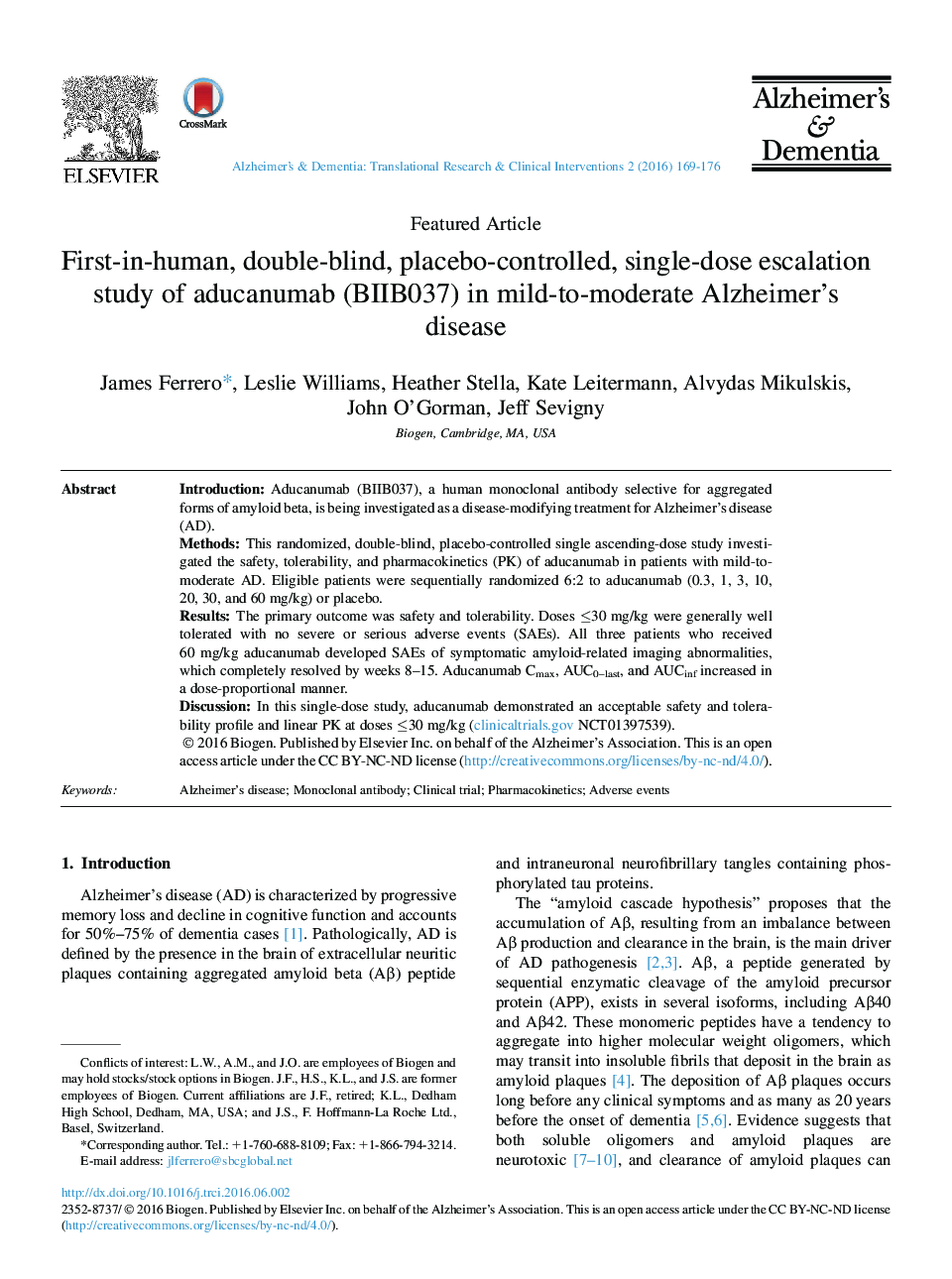| Article ID | Journal | Published Year | Pages | File Type |
|---|---|---|---|---|
| 3032077 | Alzheimer's & Dementia: Translational Research & Clinical Interventions | 2016 | 8 Pages |
IntroductionAducanumab (BIIB037), a human monoclonal antibody selective for aggregated forms of amyloid beta, is being investigated as a disease-modifying treatment for Alzheimer's disease (AD).MethodsThis randomized, double-blind, placebo-controlled single ascending-dose study investigated the safety, tolerability, and pharmacokinetics (PK) of aducanumab in patients with mild-to-moderate AD. Eligible patients were sequentially randomized 6:2 to aducanumab (0.3, 1, 3, 10, 20, 30, and 60 mg/kg) or placebo.ResultsThe primary outcome was safety and tolerability. Doses ≤30 mg/kg were generally well tolerated with no severe or serious adverse events (SAEs). All three patients who received 60 mg/kg aducanumab developed SAEs of symptomatic amyloid-related imaging abnormalities, which completely resolved by weeks 8–15. Aducanumab Cmax, AUC0–last, and AUCinf increased in a dose-proportional manner.DiscussionIn this single-dose study, aducanumab demonstrated an acceptable safety and tolerability profile and linear PK at doses ≤30 mg/kg (clinicaltrials.govNCT01397539).
